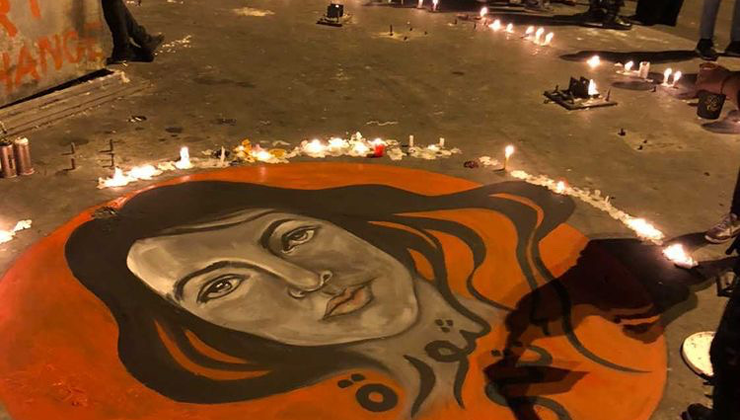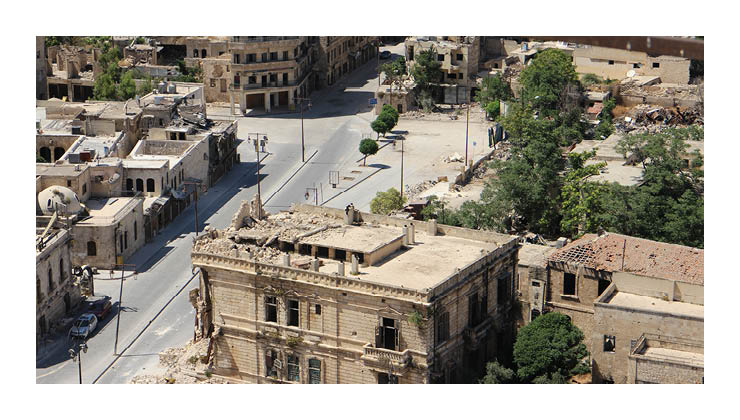In her second post on the Syrian Women’s Political Movement, Bela Kapur considers the challenges the Movement faces. [Missed the first post? catch up here]

The Syrian Women’s Political Movement has passed its first hurdles – it has established a vision of itself committed to equality, justice and freedom for all, introduced itself as a new player to the international community, and begun the process of expanding its base.
Its next steps will be decisive.
How the Movement responds to current and forthcoming challenges may ultimately shape its trajectory and impact its capacity to influence the Syrian opposition. On the one hand, the Movement’s sphere of influence is evolving. Similarly, it seems counter-productive to place unreasonable expectations on this new Movement operating in incredibly challenging political and social contexts. Yet, it is evident that addressing these challenges will be critical if the Movement is to become an influential actor in determining the future of Syria at the formal peace table and out there in the schools, villages, towns and cities of Syria, where it really matters.
First, how will the Movement evolve to become an inclusive political force: on the ground in Syria; in refugee communities; and within the broader Syrian diaspora? Specifically:
How will the Movement build partnerships with existing platforms, associations and organisations, individual politicians and activists, some of whom comprise a new generation of Syrian leaders?
How will these partnerships contribute to the development of the Movement’s positions on key substantive and process issues to be covered by the peace talks, such as:
- Design of a new constitution;
- Creation of transitional governance bodies;
- Transitional justice approaches;
- The disarmament of fighters and reform of the security sector; and reconstruction priorities?
What will be the relationship of the Movement to other women-led initiatives and women’s rights organisations within Syria and beyond, such as the Syrian Feminist Lobby?
Second, how will the Movement secure access to and influence within the political and transitional processes – in Geneva, in Astana and Sochi, Riyadh, and, where it matters most, in Syria? As I have explored elsewhere, this access and influence is critical to addressing the grave challenges to women’s rights.
In seeking to access and influence the political and transitional processes, how will the Movement combat the conscious and unconscious impact of patriarchy in restricting and shaping Syrian women’s ability, agency and freedom across all spheres of life and, particularly, restricting the exercise by most women of their rights of political participation? Specifically:
What does it mean to integrate a ‘feminist approach’ into a political movement in practice and in policy terms? How will the Movement influence men in the opposition negotiations team to include a ‘feminist approach’ to the negotiations process? And how might the Movement work with the Women’s Advisory Board of the UN Special Envoy for Syria to maximise women’s opportunities of political influence? Likewise, how might the Movement work with the Civil Society Support Room of the UN-sponsored peace talks to support the inclusion of diverse voices and perspectives in the peace negotiations?
How will the Movement advance increased inclusion of women in the critical political and peacebuilding work being undertaken at community levels, particularly through the Local Councils set up across opposition-held communities in Syria and within refugee communities?
What role can the Movement play in influencing, challenging and changing traditional and cultural norms, beliefs, and behaviour? How can it engage in promoting substantive change in gender norms and relations while also managing the risks inherent in what is essentially a process of deep social transformation?
Third, how will the Movement build upon the experience of the many Syrian women and men working with international actors over the past seven long years to establish and leverage a coalition of support that genuinely meets the Movement’s needs? Specifically:
How will the Movement partner with and influence the many allies it has accumulated to ensure coherent, coordinated and comprehensive support? The list of allies is encouragingly long. It includes:
- International women’s NGOs;
- Mainstream INGOs specialising in providing advice on politics, elections and diplomacy but which tend not to mainstream gender across their work;
- Various UN actors, including the Security Council, Special Envoy and UN Women; and
- Bilateral donors.
How can the Movement learn from and build on the emerging and longer-standing experiences gained elsewhere of women waging peace, and ensure that Syrian women are at the centre of discussions that affect their lives and the lives of their families and communities?
How can the Movement help to ensure that Syrian women and men direct and lead the political and transitional processes to ensure that these processes are not done to them but instead are done by them in support of a feminist agenda?
Tackling these questions with the clarity and courage that marked its founding, will enable the Syrian Women’s Political Movement to move from envisioning its role to becoming a transformational opposition actor. It will, in effect, be shaping the practice and understanding of what it means to be a ‘feminist political movement’ in a time of conflict.
And it will do even more: it will help shape a global feminist approach to the search for peace.

Syrian women – and the Syrian Women’s Political Movement – have much to teach us at this moment in time. Their experience helps us understand the effects of entrenched gender discrimination and how those effects are deepened and widened during unrest and conflict. They help us to understand just how hard it is to change norms, beliefs and behaviours and to re-shape the practices, societies and institutions that reflect and indeed perpetuate those same norms, beliefs and behaviours. They help us understand the importance of ensuring women’s full and meaningful participation in peace and transitional processes to bring about the very comprehensiveness and sustainability of peace which underpin and are reinforced by equal, just and free societies.
Syrian women’s experiences – in the Syrian Women Political Movement and beyond – also help us on a much deeper level: showing us what women can do; what they can contribute; who they can be. They help us all, because we learn from them, and because we are inspired by them. We begin understanding the power of connection, of solidarity, of the common thread that unites us all, women and men, who are fighting for justice, equality and freedom.
The urgent need for Syrians to work towards an inclusive – and possibly good enough – political settlement cannot be emphasised enough. Negotiations must include representatives of the Syrian people able to advance the rights of the Syrian people are protected and promoted, and not just representatives of the Syrian regime and the political and military opposition(s). And amongst these representatives, Syrian women must be included across the entire range of negotiations, empowered with full negotiating and decision making powers.
As Mariam Jalabi, co-founder of the Movement and Representative of the Syrian National Coalition to the United Nations in New York, explains:
“We need to work together, because I get my power from you. You get your power from me. We all have value added that the other doesn’t bring. So I extrapolate that to everyone in the group. And then everyone gets to be super powerful!”
Read more: New Syrian Women’s Political Movement hopes to bring a feminist approach to peace and transition
The views, thoughts and opinions expressed in this blog post are those of the author(s) only, and do not reflect LSE’s or those of the LSE Centre for Women, Peace and Security.





